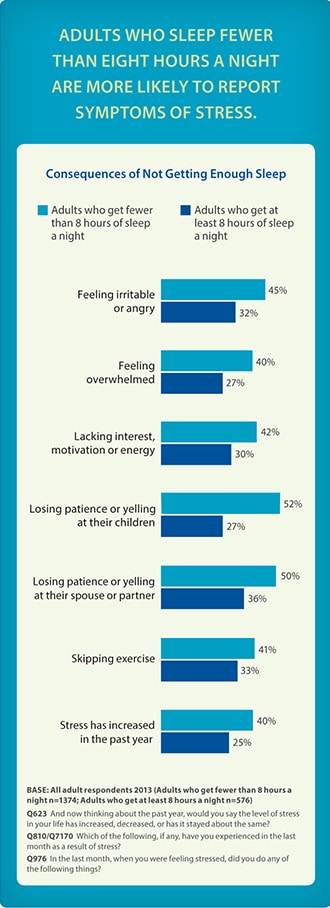What is stress, really? It’s your body’s reaction to a certain situation or event. This can be manifested by a physical, mental, or emotional reaction. While stress can be positive, negative situations tend to illicit a bigger stress response. Luckily there are stress management. Certain situations can happen and include, but are not limited to:
- Being bullied or harassed
- Working too hard
- Being fired from a job
- Marriage or relationships problems
- Recent break up or divorce
- Death of a loved one
- Difficulty in school
- Problems with family and/or friends
- Moved to a new residence
Sometimes, stress can help motivate you to get things done, even incredibly stressful things like the ones listed above. But mostly, stress seems to get in the way of accomplishing all that you want to accomplish.
There are five main things to know about stress:
- Stress affects everyone
- Not all stress is bad
- Long-term stress can harm your health
- There are ways to manage stress
- If you’re overwhelmed by stress, ask for help from a licensed professional
Stress affects everyone
Think about it: every human being since the beginning of time has experienced stress at one point or another. This “fight-or-flight” feeling is a chemical response that prepares your body for a physical reaction because it thinks it’s under attack. The origins of the stress you feel today stem from our human ancestors who developed this reaction to help them survive in nature. Nowadays, about half of all Americans say they’re dealing with moderate stress.
Not all stress is bad
The word “stress” typically has a negative connotation. However, there are certain types of stress (also known as acute stress) that are in place to protect you. In situations where danger may arise, your body will automatically switch into survival mode to help you defend yourself. In non-life-threatening scenarios, stress can help to motive you i.e. taking an important test or interviewing for a new job.
Long-term stress can harm your health
On the flipside, consistent feelings of stress, anxiety, or depression can cause continuous physical or emotional responses. This is considered chronic stress, which is caused by an overload of stress that has continued to fester for too long with no intervention.
Warning signs of chronic stress can be physical or emotional:
- Physical
- Headache
- Too much or not enough sleep
- Muscle tension
- Digestive issues
- Change in sex drive
- Emotional
- Hopelessness
- Moodiness
- Restlessness
- Lack of motivation
- Irritability
- Depression
It’s important to catch the feelings of chronic stress early. Some telltale signs of stress overload include: panic attacks, constant worrying, turning to substances to cope, overeating/under-eating, smoking, depression, and many other physical side effects.
There are ways to manage stress

Stress management can help you learn how to keep your stress at bay. If you feel stress in your daily life, ask yourself the following questions to see the areas in your life in which you may need to adjust:
- What is causing me stress?
- What is the biggest priority for me to accomplish today? (Be kind to yourself if you don’t get to everything)
- Who can I talk to when I’m feeling overwhelmed?
- Do I use substances to cope with stress? If so, how often and how much am I using?
- How am I spending my free time?
- What activities or hobbies bring me peace?
- How many hours of sleep am I getting? If not a lot, am I spending too much time on devices or consuming too much caffeine?
Lack of sleep can add to your stress level, which in turn will cause a cycle of stress and sleeplessness. Dedicating time to developing better sleep habits is crucial to breaking that cycle or avoiding it all together.
According to the American Psychological Association, “Survey findings show that stress may be getting in the way of quality sleep. American adults report sleeping an average of 6.7 hours a night — less than the minimum recommendation of seven to nine hours.6 In addition, 42 percent of adults report that their sleep quality is fair or poor and 43 percent report that stress has caused them to lie awake at night in the past month.”
Some tips for better sleep include:
Be consistent: Go to bed and get up at the same time each day, including weekends.
Ensure that your sleeping environment is comfortable. Make sure it is dark, quiet, and relaxing.
Remove electronic devices. This includes TVs, computers, tablets, and smart phones.
Be aware of what you consume in the evenings. Avoid large meals, caffeine, or alcohol before bed.
Consistent exercise. Being physically active during the day, even just going on a simple walk, can help you fall asleep more easily at night.
If making changes in these areas seems too easy, remember that stress simply boils down to a chemical reaction. Doing things that illicit a different chemical reaction in your brain like serotonin, oxytocin, or dopamine can help counteract the feelings and symptoms of stress. Going for a 15-20 minute walk a few times a week, eating a balanced diet, getting adequate sleep, and even laughing can help boost those chemical reactions in your body.
If you’re overwhelmed by stress, ask for help from a licensed professional
If the above tips don’t seem to be working to help manage your daily stress, the next step would be to contact a mental health professional. Between medication management with a psychiatric provider or receiving therapy from a licensed counselor, New Roads Behavioral Health has multiple levels of care that you can benefit from to help.
If your stress has reached the point that you’re thinking of hurting yourself or someone else in the very near future, go to your closest emergency room, call 911, or contact a free suicide prevention helpline, including the National Suicide Prevention Lifeline at 800-273-TALK (800-273-8255).


